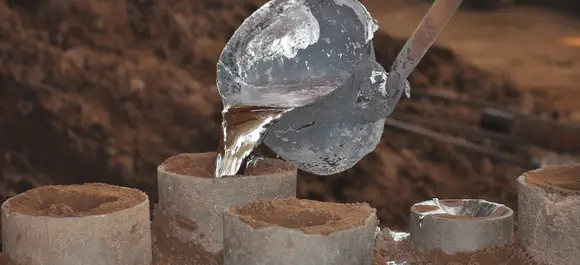Mobile:+86-311-808-126-83
Email:info@ydcastings.com
Innovative Techniques and Applications for High-Quality Aluminum Castings in Modern Industries
The Importance of Aluminum Castings in Modern Manufacturing
Aluminum castings play a critical role in modern manufacturing, offering lightweight, durable, and corrosion-resistant solutions for various industries. As the demand for innovative materials continues to rise, aluminum castings have emerged as a preferred choice across sectors such as automotive, aerospace, electronics, and consumer goods. This article explores the benefits, processes, and applications of aluminum castings, highlighting their significance in today’s industrial landscape.
Advantages of Aluminum Castings
One of the primary advantages of aluminum castings is their lightweight nature. Aluminum has a lower density compared to other metals, making it ideal for applications where weight reduction is crucial. For instance, in the automotive sector, lighter components contribute to better fuel efficiency and enhanced performance. Furthermore, aluminum castings exhibit excellent strength-to-weight ratios, which means they can withstand substantial stress while remaining lightweight.
Another significant benefit is aluminum’s intrinsic resistance to corrosion. When exposed to moisture or harsh environments, aluminum develops a protective oxide layer that shields it from further deterioration. This characteristic is particularly valuable for components used in outdoor or marine applications, where exposure to the elements can lead to rapid degradation of other materials.
Additionally, aluminum castings offer superior thermal and electrical conductivity. This property makes aluminum ideal for manufacturing components such as heat sinks and electrical enclosures in electronics, where managing heat and ensuring optimal performance are essential.
Manufacturing Process
The production of aluminum castings typically involves several key processes, with sand casting, die casting, and investment casting being the most prevalent methods.
1. Sand Casting In this method, a pattern of the desired part is created and surrounded by a mixture of sand and a bonding agent. The mold is then filled with molten aluminum. Sand casting is favored for its versatility, ability to produce complex shapes, and cost-effectiveness for small to medium production runs.
aluminum castings

2. Die Casting This process involves forcing molten aluminum into steel molds at high pressure. Die casting is known for producing high-volume, high-precision components with a smooth surface finish. This method is commonly used for automotive parts, appliances, and various consumer products.
3. Investment Casting Also known as lost-wax casting, this technique allows for the production of intricate designs and tight tolerances. A wax pattern is coated in a ceramic material, and once the ceramic hardens, the wax is melted away, leaving a mold for the molten aluminum. This method is often employed in aerospace and medical applications where precision is paramount.
Applications
Aluminum castings find applications in various industries due to their versatility and performance characteristics. In the automotive industry, components such as engine blocks, transmission housings, and wheels benefit from the lightweight and durable nature of aluminum, leading to improved vehicle efficiency and performance.
In aerospace, aluminum castings are critical for aircraft components, including fuselage structures and engine brackets, due to their strength and resistance to fatigue. Additionally, the electronics industry utilizes aluminum castings for enclosures and heat sinks, capitalizing on the metal’s thermal management properties.
Moreover, the consumer goods sector employs aluminum castings in products ranging from kitchenware to sporting equipment, underscoring the material's adaptability and aesthetic appeal.
Conclusion
In conclusion, aluminum castings are an integral part of modern manufacturing, offering a blend of lightweight performance, durability, and resistance to corrosion. As industries continue to seek innovative solutions to enhance efficiency and reduce weight, the role of aluminum castings is expected to grow. Understanding the benefits, manufacturing processes, and applications of aluminum castings helps us appreciate their significance in driving advancements across various sectors, ultimately contributing to a more sustainable and efficient future.
-
Why Should You Invest in Superior Pump Castings for Your Equipment?NewsJun.09,2025
-
Unlock Performance Potential with Stainless Impellers and Aluminum End CapsNewsJun.09,2025
-
Revolutionize Your Machinery with Superior Cast Iron and Aluminum ComponentsNewsJun.09,2025
-
Revolutionize Fluid Dynamics with Premium Pump ComponentsNewsJun.09,2025
-
Optimizing Industrial Systems with Essential Valve ComponentsNewsJun.09,2025
-
Elevate Grid Efficiency with High-Precision Power CastingsNewsJun.09,2025











